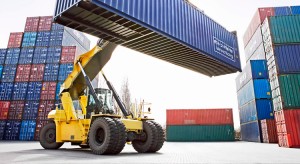Written by Alfredo Sainz
The Government called entrepreneurs to create new quality standards, sanitary barriers and anti-dumping clauses
With its sights set on 2016, in recent weeks the main industrial sectors benefited by the economic model began to be called by the Ministry of Commerce for the creation of protectionist measures that transcend Kirchnerism.
Next December, the assumption of the new national authorities and the end of the term that the World Trade Organization (WTO) imposed on Argentina to stop using the Advance Sworn Import Declarations (DJAI) coincide, and the fear shared by the Entrepreneurs and officials of the team led by Augusto Costa is that the new year comes with a change in foreign trade policy, which could translate into greater openness in the economy.
Faced with this possibility, they are already advancing in the implementation of new anti-dumping measures, phytosanitary barriers and quality standards, among other possible measures, that work as a containment dam against an eventual invasion of imported products. "From the Government they alerted us that before the end of the year the DJAI will fall, and we are already working on measures so that all the land gained by industrial SMEs in recent years is not lost," admitted Marcelo Fernández, president of the Confederation General Economic Business of the Argentine Republic (CERA).
"We are interested in the internal market. The idea is not to take advantage of Argentine consumers, but to have the measures that allow us to develop a national industry and ensure employment, "are the arguments that are repeated at Cgera when it is mentioned that local consumers end up paying many prices. more expensive when buying a shirt, a television or a pair of glasses.
One of the tools that employers appeal to is the design of a new scheme of quality standards. The objective is to replicate models that regulate the manufacture and commercialization of import-sensitive products, in order to avoid what they consider "an exaggerated opening" of their business. For this type of measure, different industries are working together with technicians from the Argentine Institute for Standardization (IRAM) in the development of specific regulations for their respective areas.
"In our case, we are already working on a project to have quality standards for the manufacture and marketing of glasses and optical products, which will replicate the one that is already in force in Spain. The objective is to reach 2016 with the new regulations in force. We do not want anything unusual, but to be on an equal footing with what developed countries do ”, explains Norberto Fermani, president of the Chamber of the Optical Industry (Cadioa), which brings together the 34 eyeglass factories that operate in the country.
According to the data that they handle in Cadioa, of the five million glasses that are sold in the country today, half are imported. And within that 50%, a "very high" percentage, according to Fermani, are illegally entered from China. "The situation is so serious that even PAMI and other social works are delivering frameworks that enter the country illegally," added the businessman.
The same work being carried out by different industrial sectors with IRAM is replicated with the National Institute of Industrial Technology (INTI) for the application of new phytosanitary barriers that stop the entry of imported products. “What we are looking for is an equalization of the norms with what happens in the rest of the world. For example, in the United States they are very careful to avoid the entry of buttons or closures that contain nickel, because it is considered a carcinogen. Now we are doing the same studies to prevent the buttons made in China that have this component from entering the country ”, they explain in Cgera.
Protection of health is also the argument that shoe manufacturers use to stop the importation of slippers that use vinyl fabrics to replace leather. For their part, in the textile sector they also acknowledge that they are working on regulations that regulate the quality of garments, although they did not provide details. "The textile sector has managed in the last ten years to initiate a reconversion oriented towards innovation and technological development, promoting regional economies, and this type of work allows the development to be institutionalized," explained Pedro Bergaglio, president of the Argentine Chamber of Companies of the Sweater Industry.
Jointly with the Ministry of Commerce, industrial SMEs are also working on the implementation of new anti-dumping measures. Currently, these types of regulations already apply to protect national manufacturers of yarns, glasses and footwear, and the idea is to expand them to other areas. "It is not an easy task, because the first thing to prove is that there is harm for a local industry. And the other problem we face is that these are not general measures to protect an entire sector and can only be applied product by product and by each country of origin, "admitted Fermani.
IN DEFENSE OF THE MODEL
Quality standards
The objective is to replicate projects that regulate the importation and commercialization of products in Europe and the USA.
Phytosanitary barriers
The INTI is working to detect components that serve to prevent the entry of products from abroad.
Anti-dumping measures
The idea is to expand the areas in which these clauses against unfair competition are already applying today.
SOURCE: THE NATION
